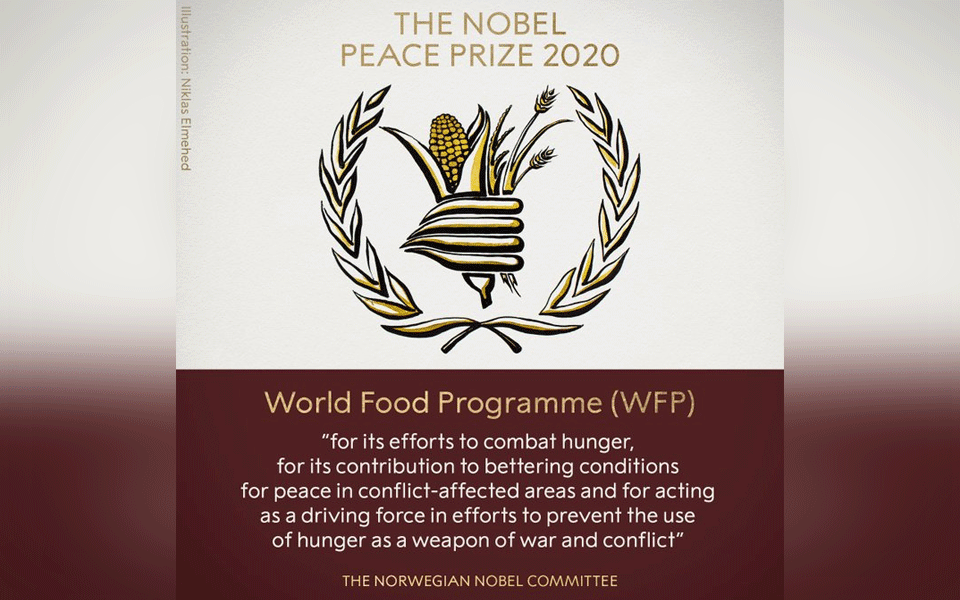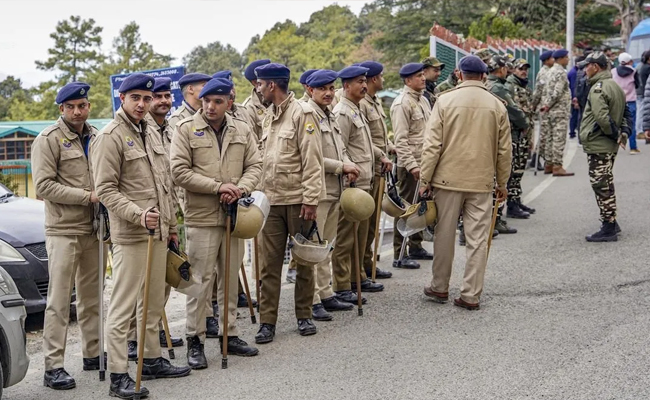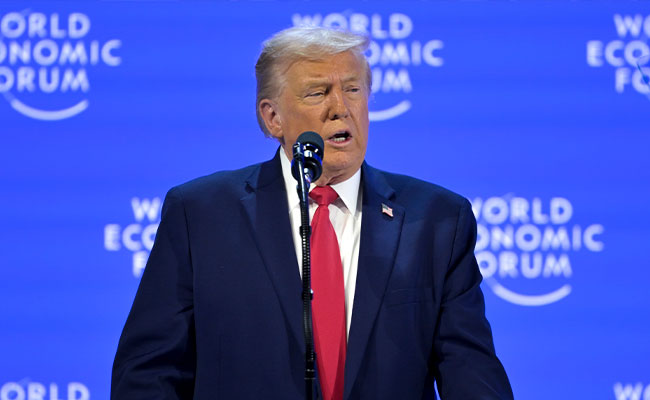Oslo: The World Food Programme on Friday won the 2020 Nobel Peace Prize for its efforts to combat hunger and food insecurity around the globe.
The announcement was made in Oslo by Berit Reiss-Andersen, the chair of the Nobel Committee.
The Nobel Committee said that the coronavirus pandemic has added to the hunger faced by millions of people around the world and called on governments to ensure that WFP and other aid organizations receive the financial support necessary to feed them.
There was no shortage of causes or candidates on this year's list, with 211 individuals and 107 organizations nominated ahead of the Feb. 1 deadline.
However, the Norwegian Nobel Committee maintains absolute secrecy about whom it favors for arguably the world's most prestigious prize.
The award comes with a 10-milion krona ( 1.1 million) cash prize and a gold medal to be handed out at a ceremony in Oslo, Norway, on Dec. 10, the anniversary of prize founder Alfred Nobel's death. This year's ceremony will be scaled down due to the pandemic.
On Monday, the Nobel Committee awarded the prize for physiology and medicine for discovering the liver-ravaging hepatitis C virus. Tuesday's prize for physics honored breakthroughs in understanding the mysteries of cosmic black holes, and the chemistry prize on Wednesday went to scientists behind a powerful gene-editing tool. The literature prize was awarded to American poet Louise Gl ck on Thursday for her candid and uncompromising work.
Still to come next week is the prize for outstanding work in the field of economics.
Let the Truth be known. If you read VB and like VB, please be a VB Supporter and Help us deliver the Truth to one and all.
Ranchi (PTI): The body of a migrant worker from Jharkhand’s Giridih district killed in Saudi Arabia in October last year has arrived at Ranchi Airport, but his family refused to accept it over pending compensation, officials said.
Shikha Lakra, team leader of the state migrant control cell, told PTI that, before taking the body of Vijay Kumar Mahato, the family is demanding compensation from the private company where he used to work in the Arab country.
Mahato was killed in an alleged crossfire between the police and criminals.
“Since it was a bullet injury case, the matter is before a court in Jeddah. The final compensation may depend on the court’s decision,” Lakra said.
“The Indian Embassy informed us about the body’s arrival, and coordination was done with district authorities. Our role is limited to coordination in cases involving overseas employers and foreign jurisdiction,” she added.
Giridih Deputy Commissioner Ram Niwas Yadav said the authorities will try to convince the family to perform the last rites.
“We have already sanctioned Rs 5 lakh under the government scheme for migrant’s deaths abroad. The compensation payment might take some time,” he said.
The body is currently at the mortuary of Rajendra Institute of Medical Sciences (RIMS) in Ranchi.
The Family members said they will only accept it if the company provides written assurance regarding compensation. “Without that assurance, we will not receive the body,” said Ram Prasad Mahato, the deceased’s brother-in-law.
Mahato, a native of Dudhpaniya village in Madh Gopali panchayat under Dumri block, was employed as a tower line fitter. His family said he was struck by a bullet during a gunfight between local police and an extortion gang and later succumbed to his injuries.
Social activist Sikander Ali said Mahato is survived by his wife, two young sons aged five and three, and elderly parents.





